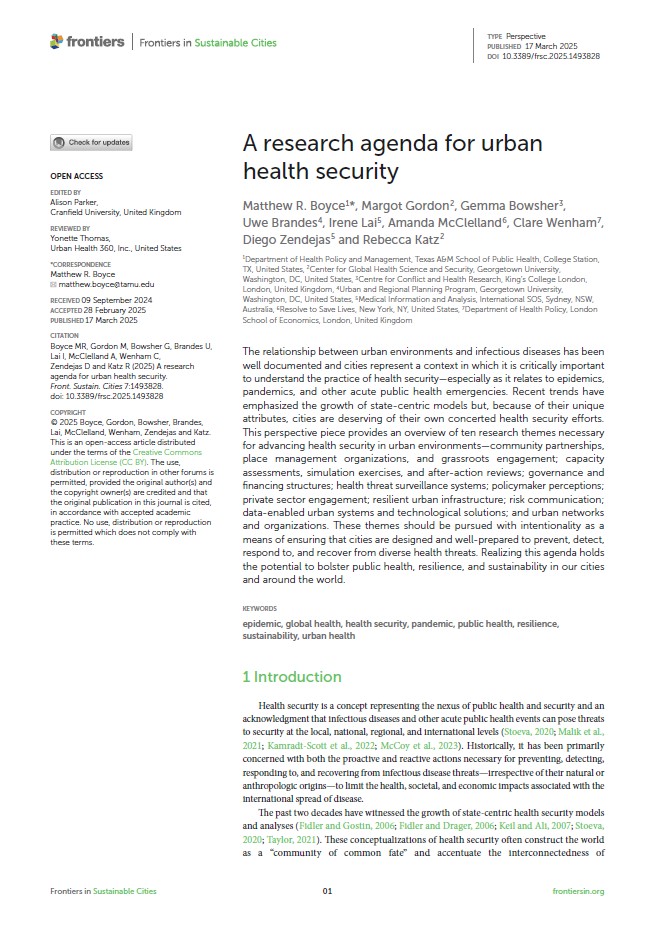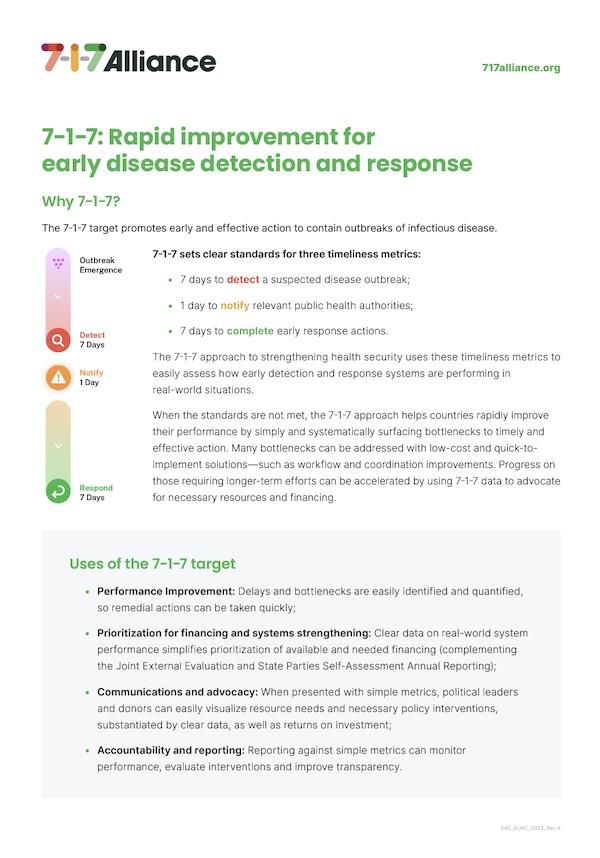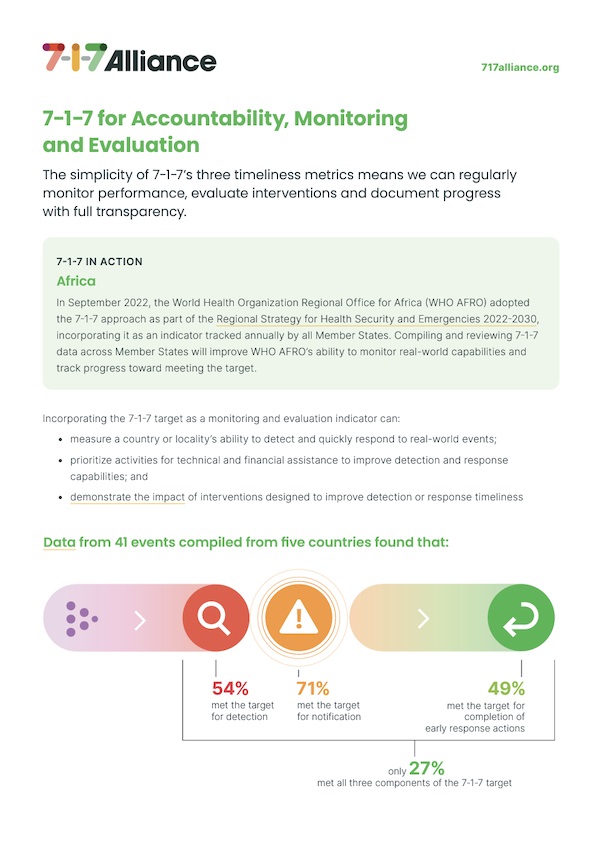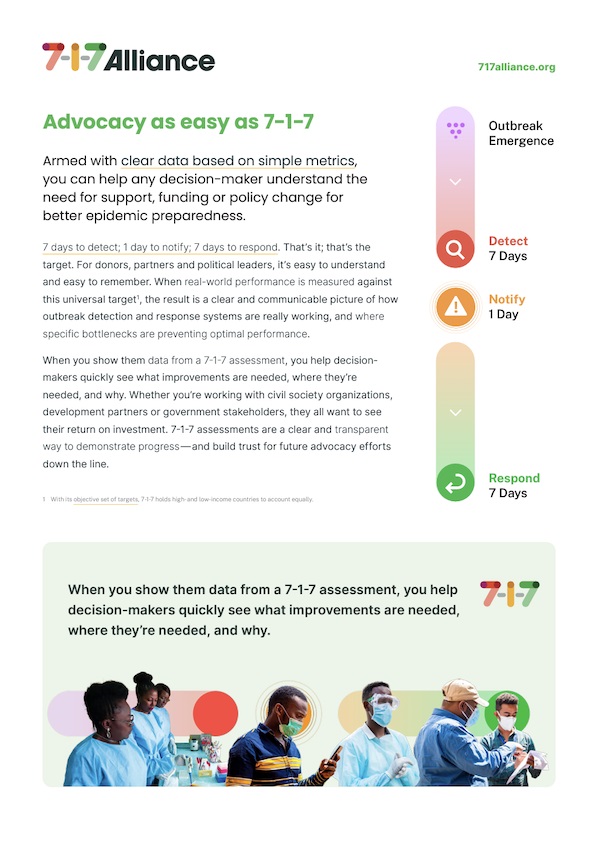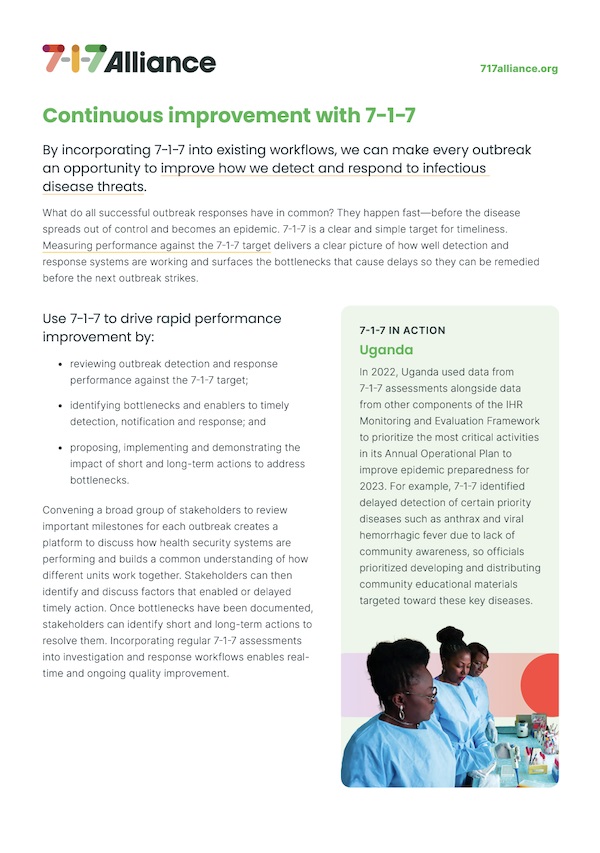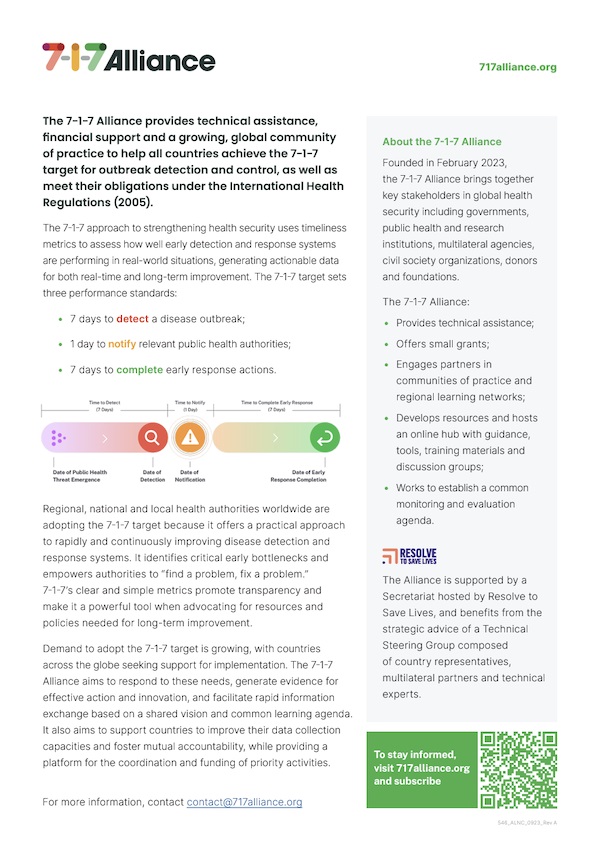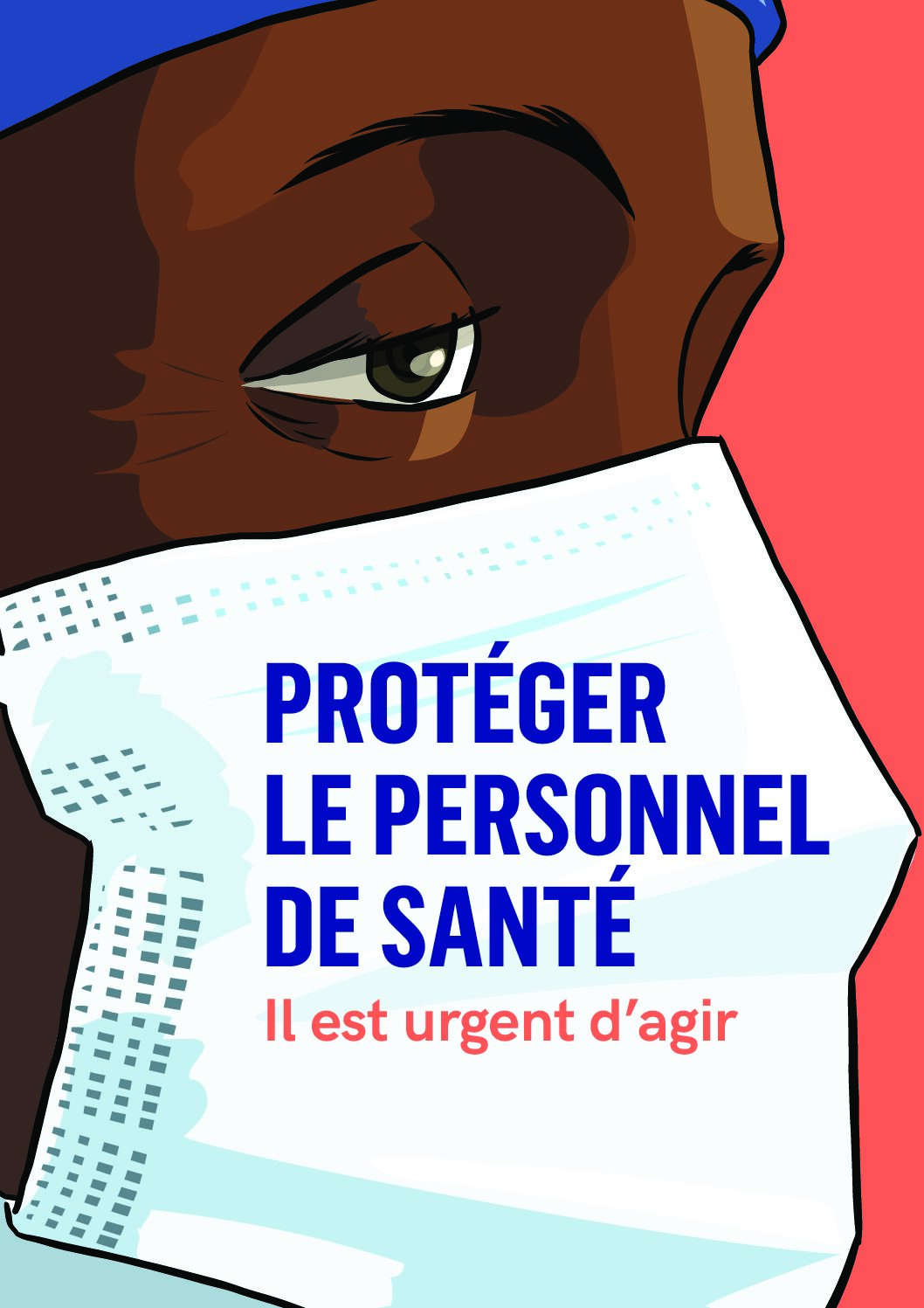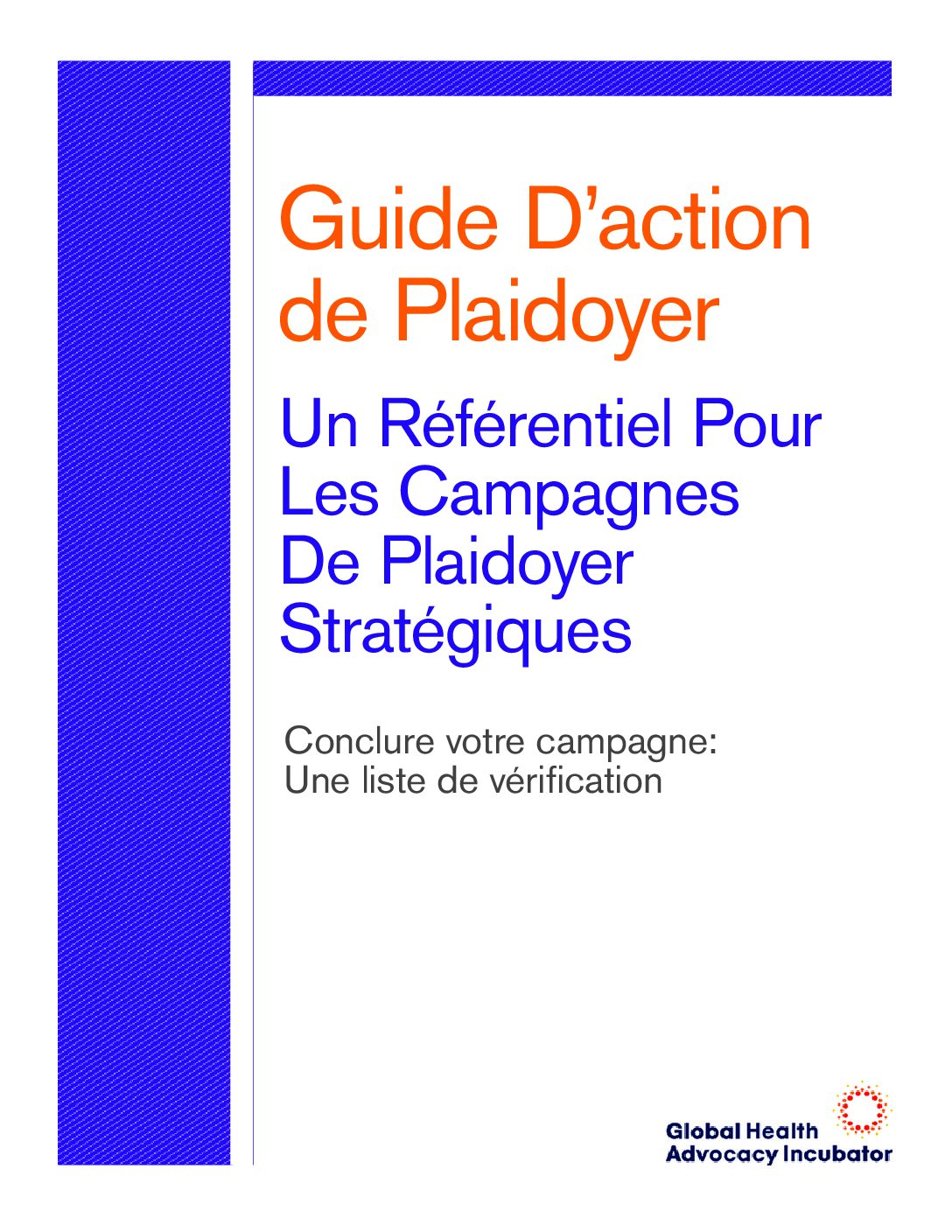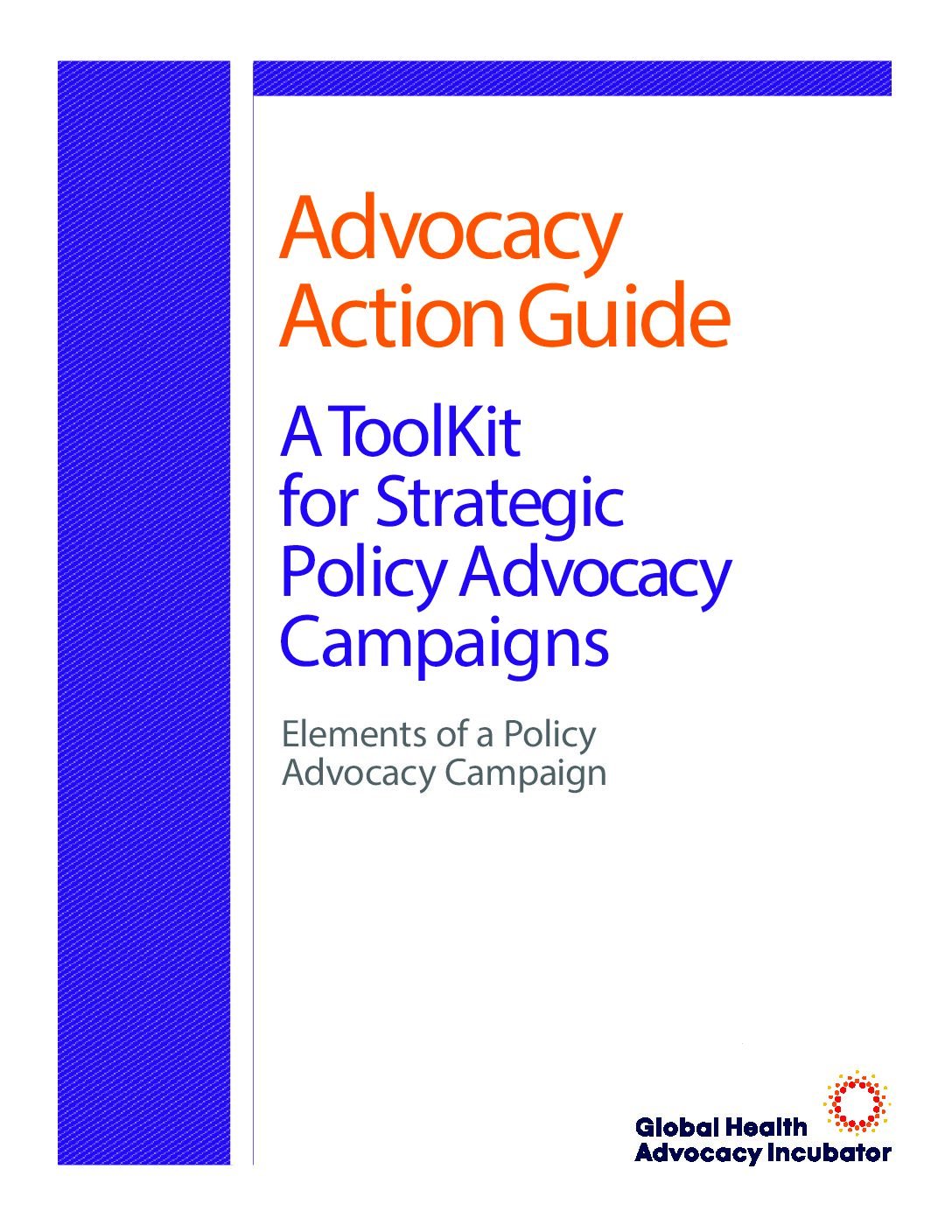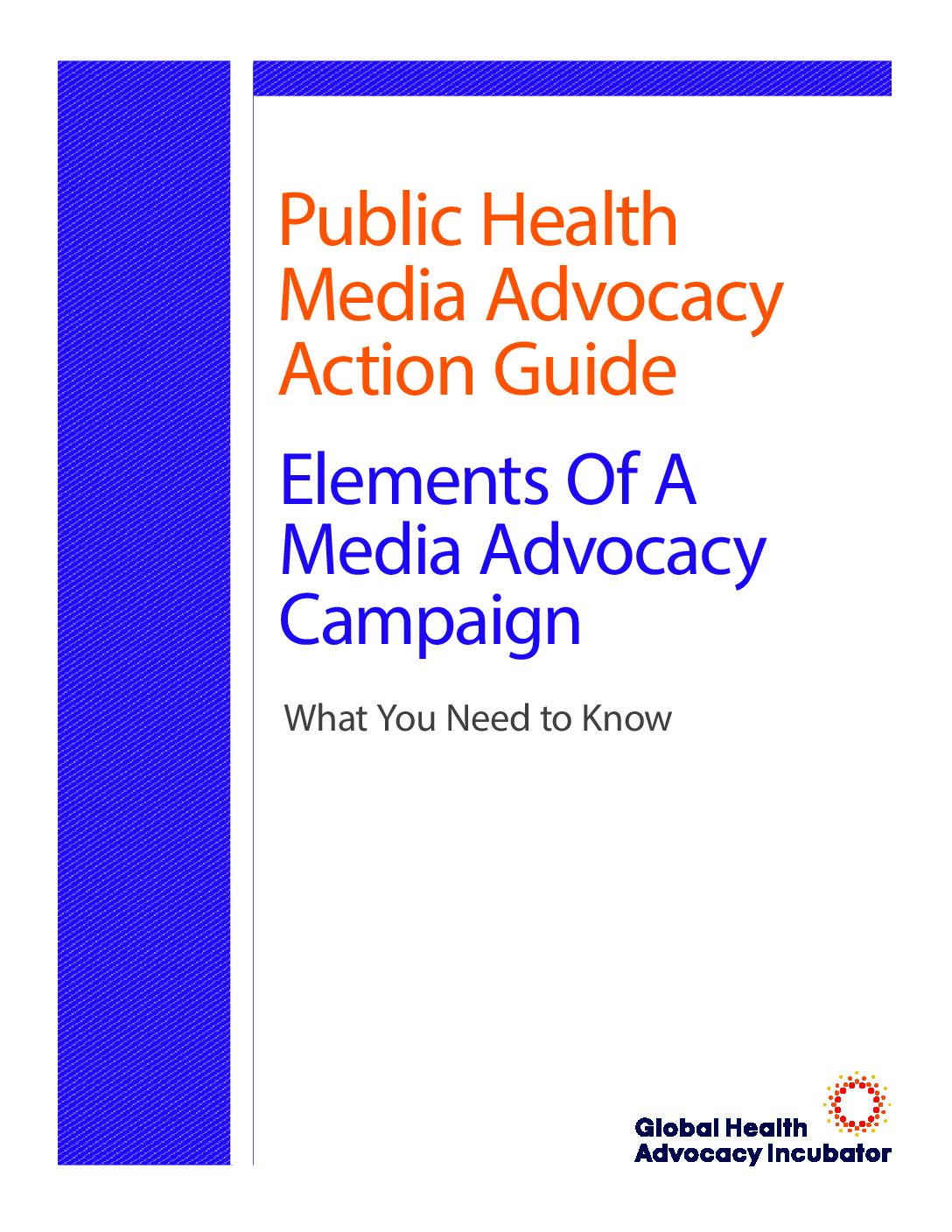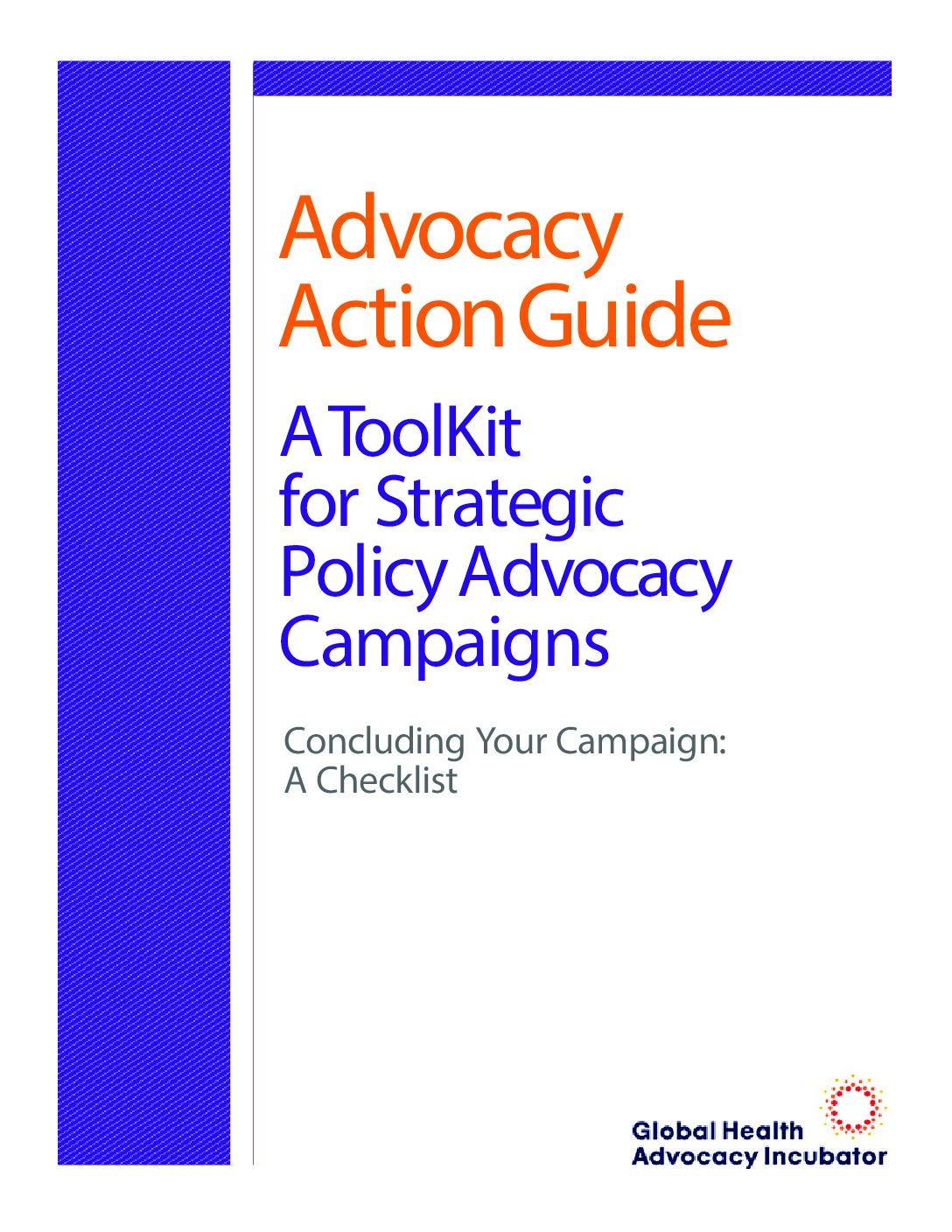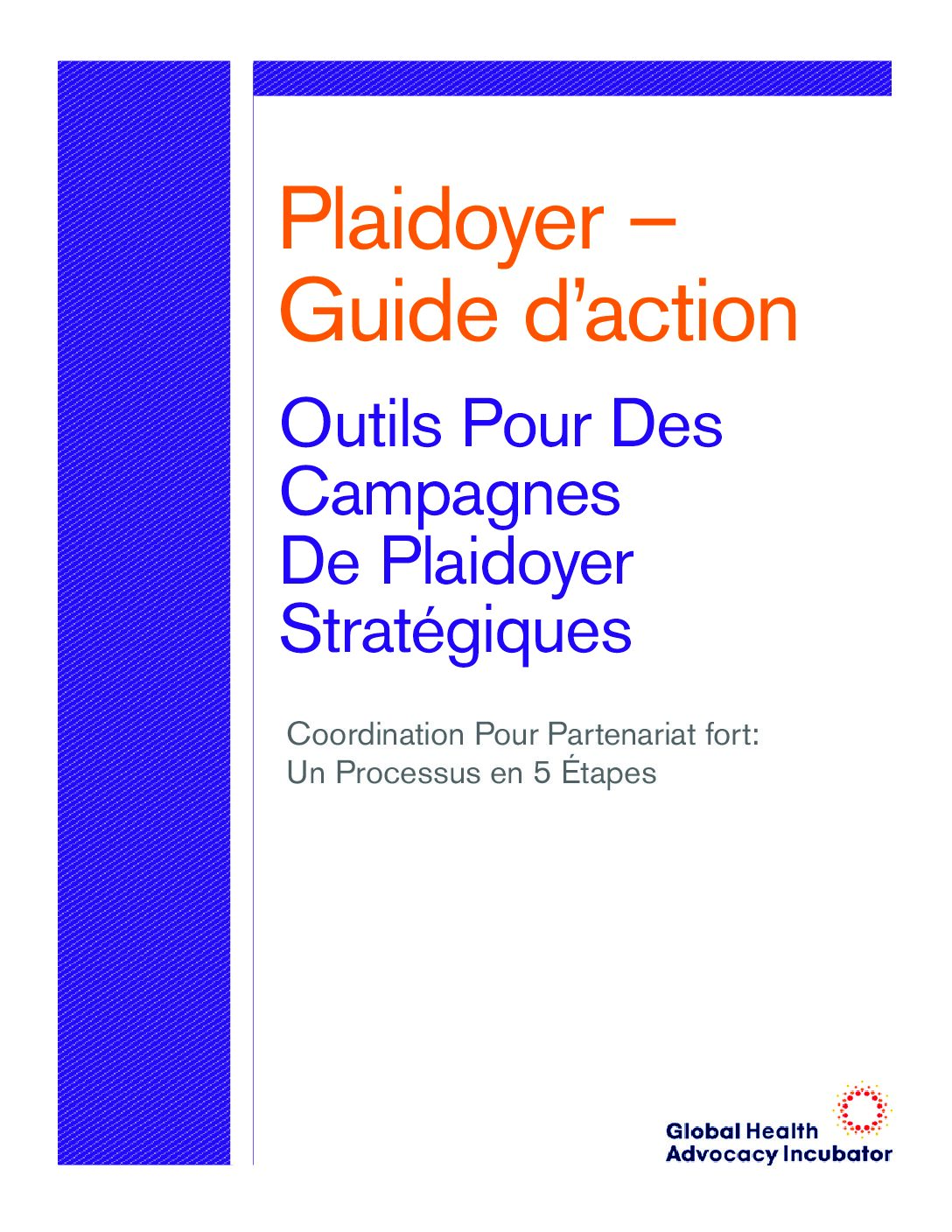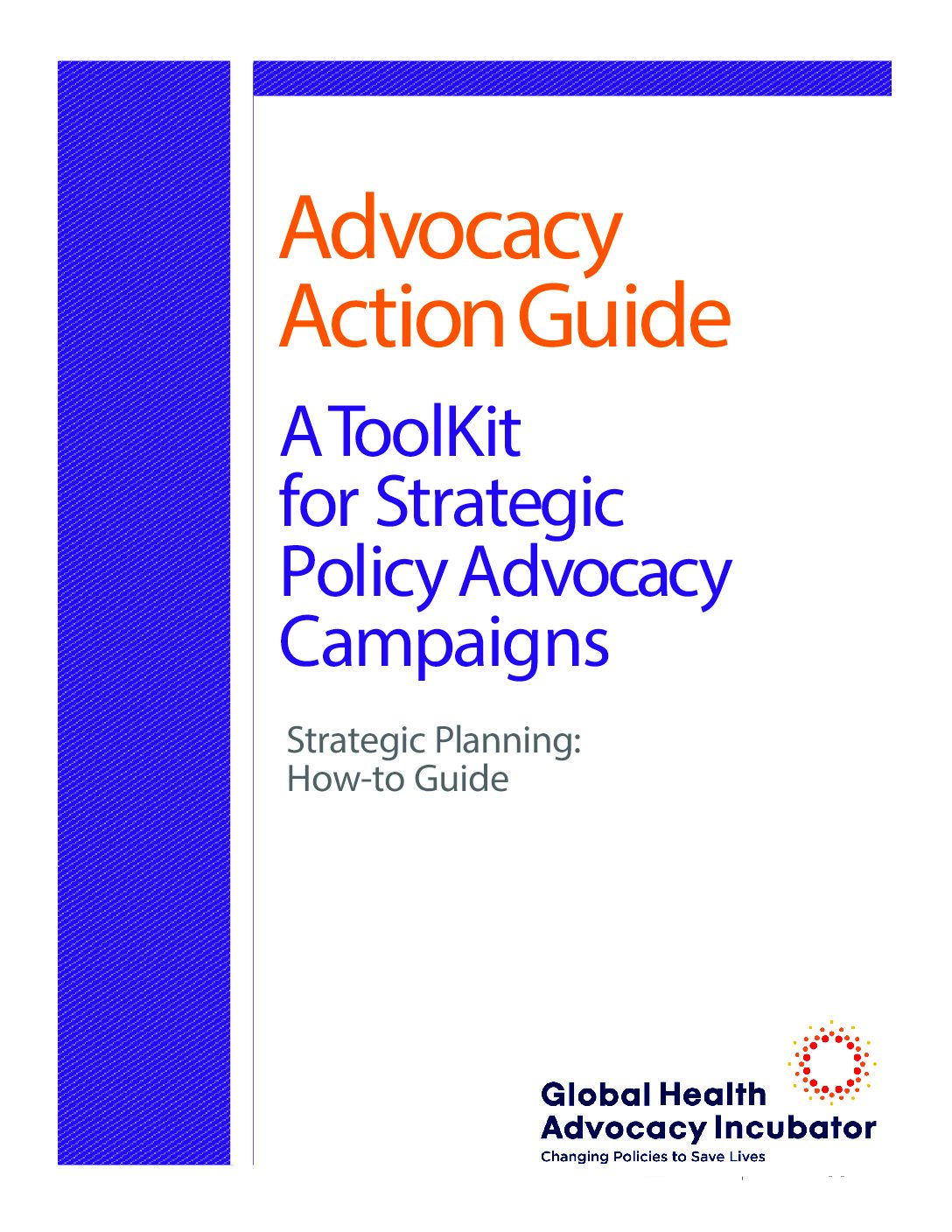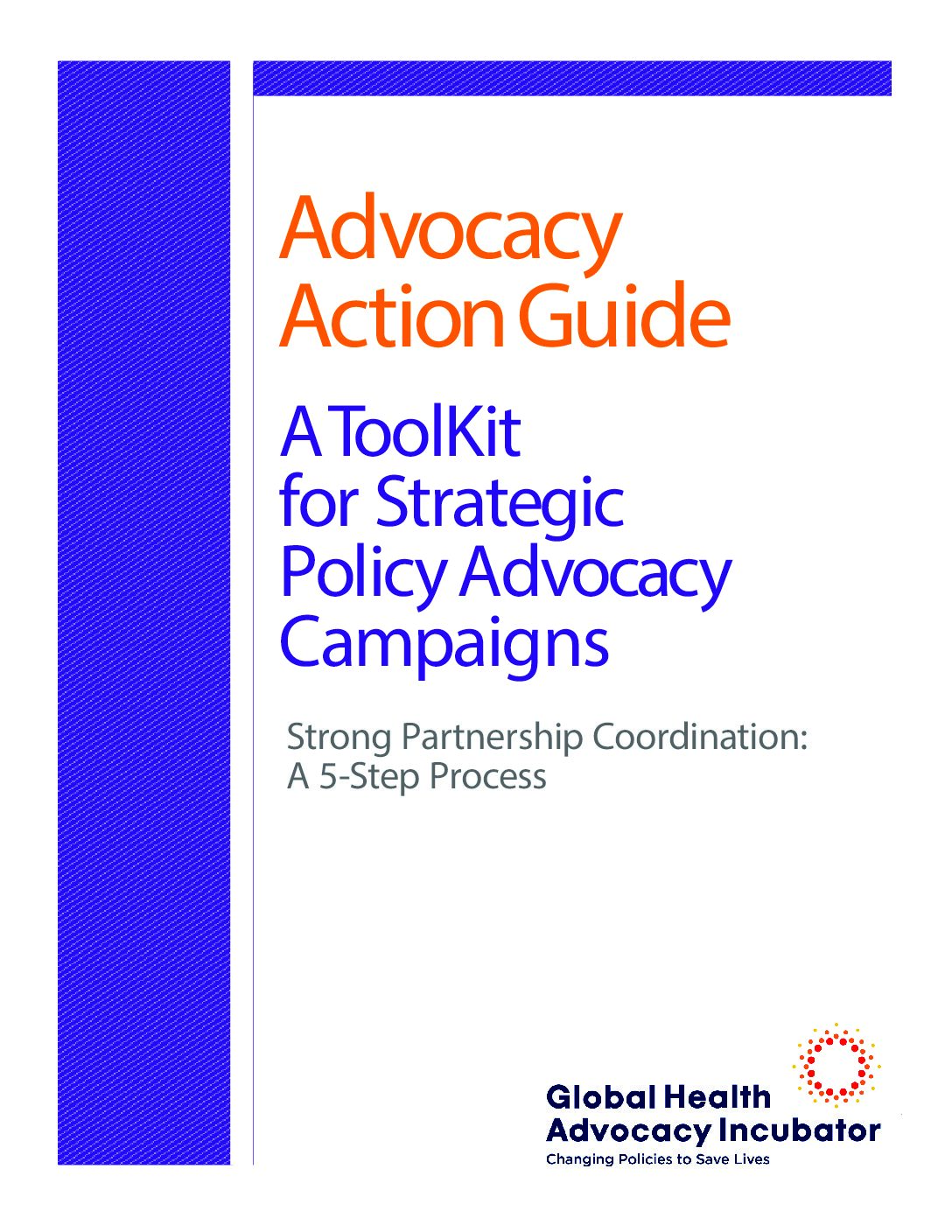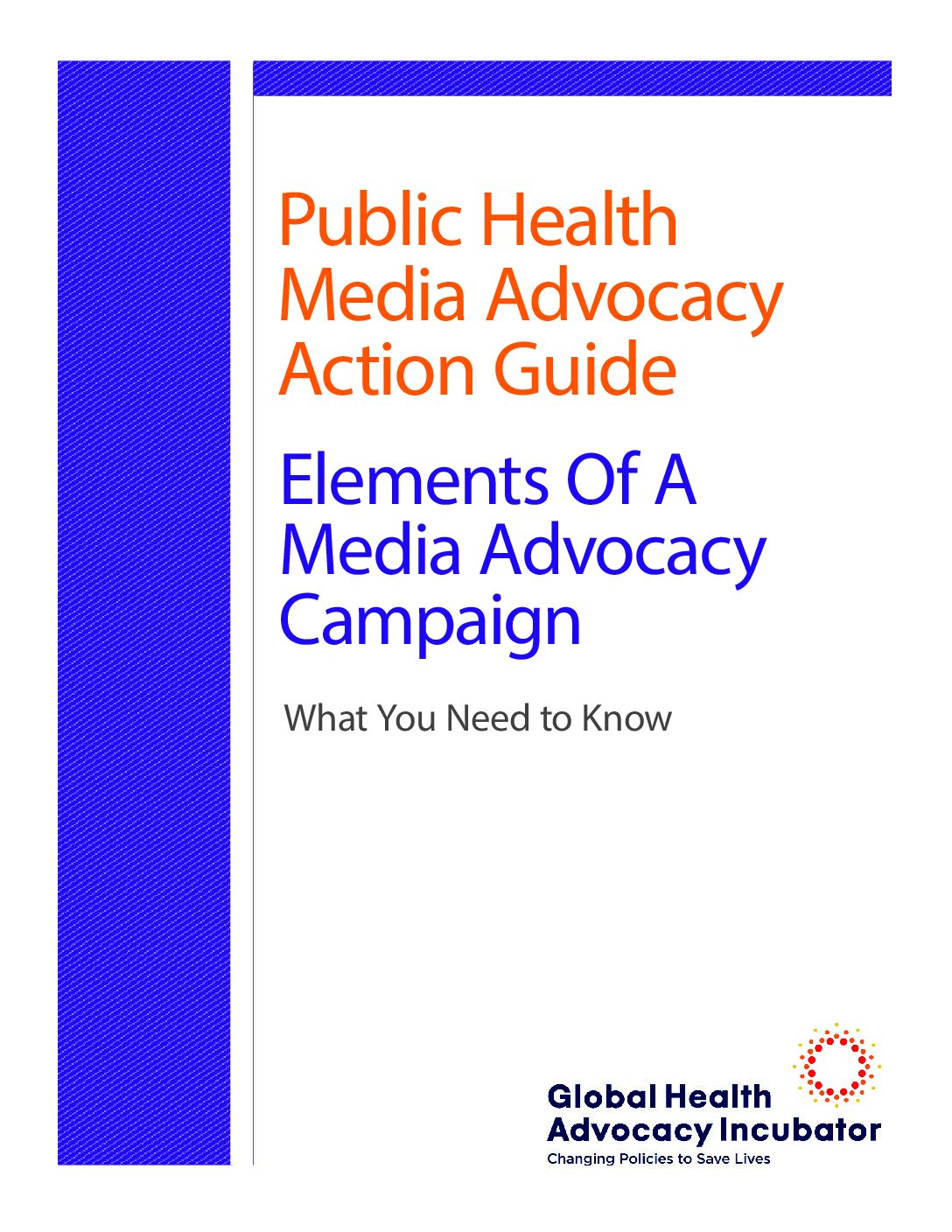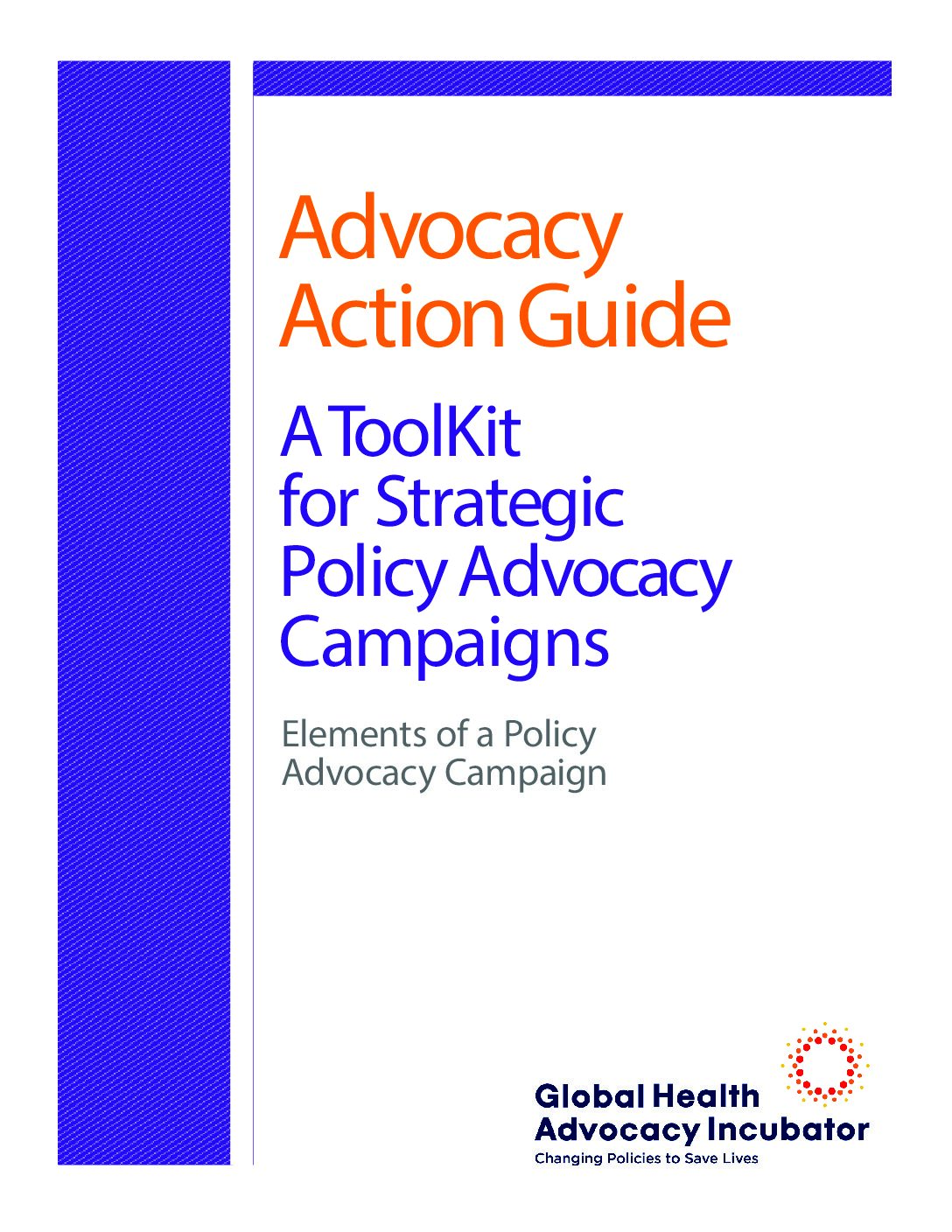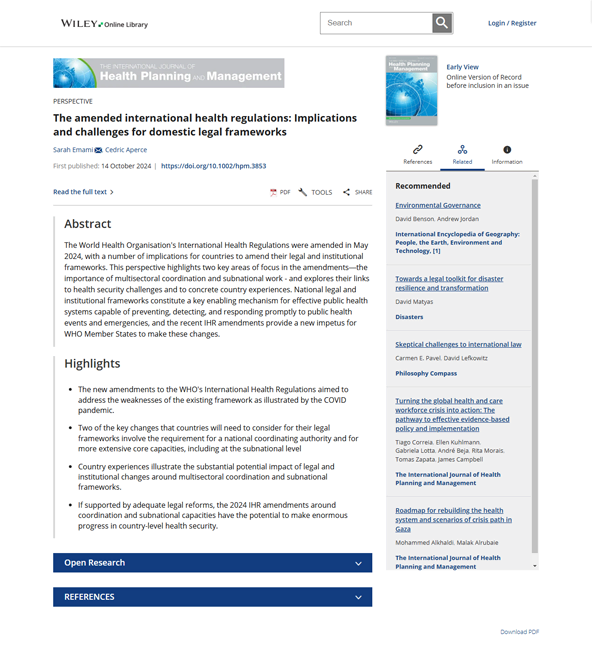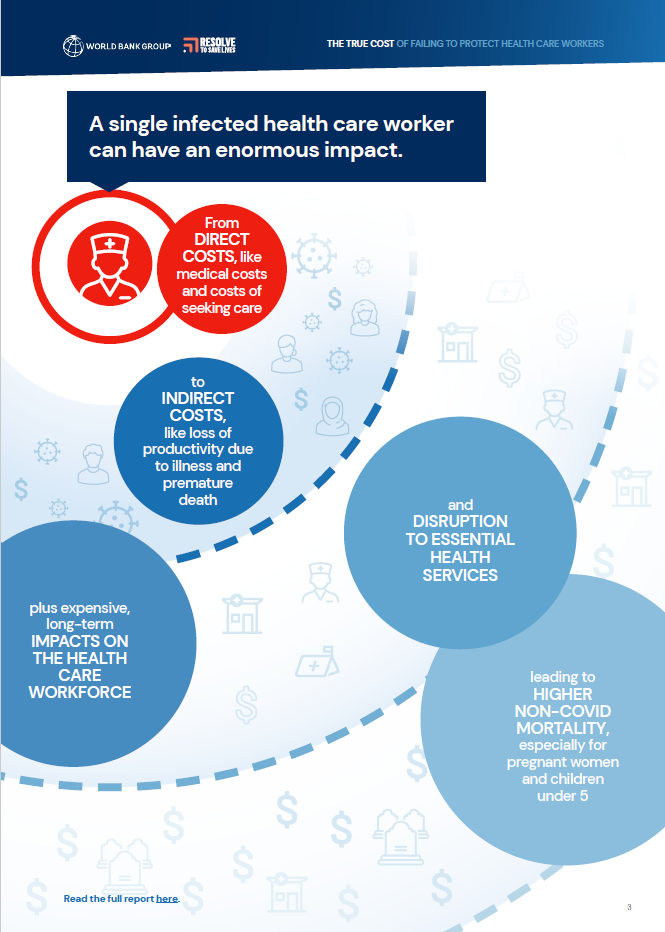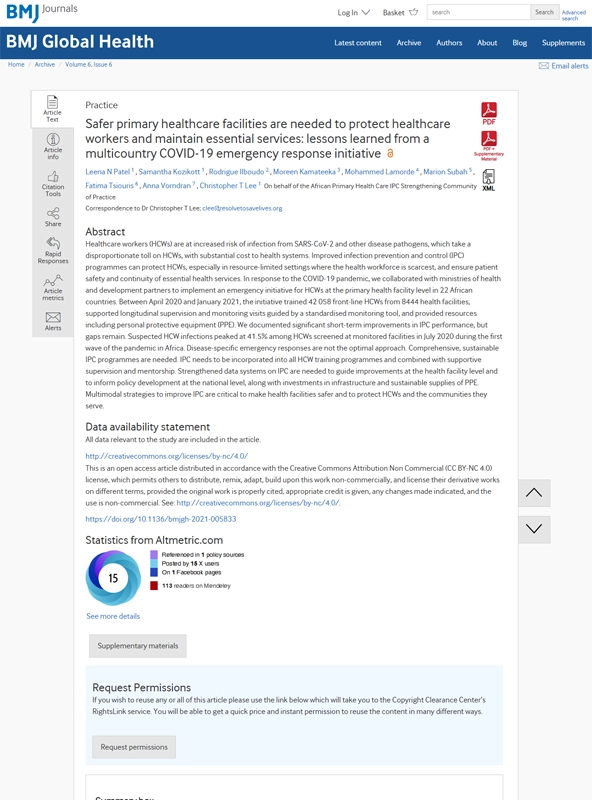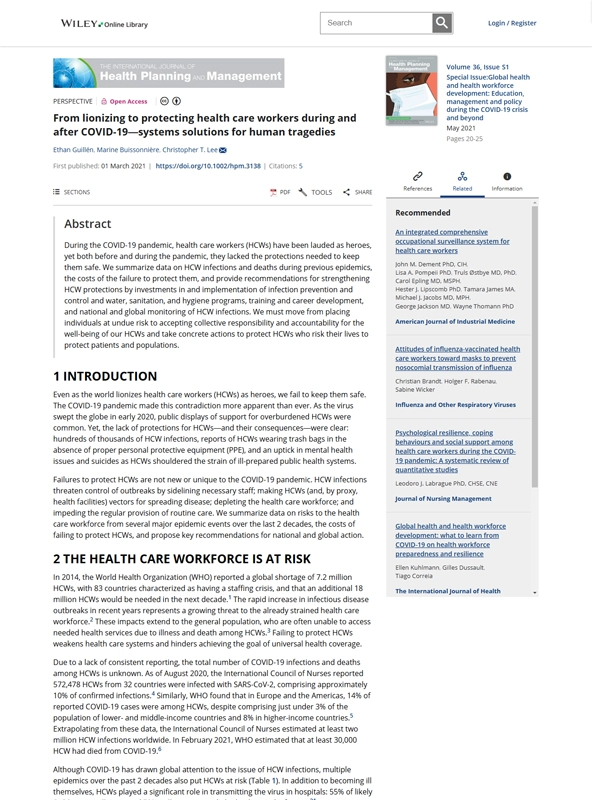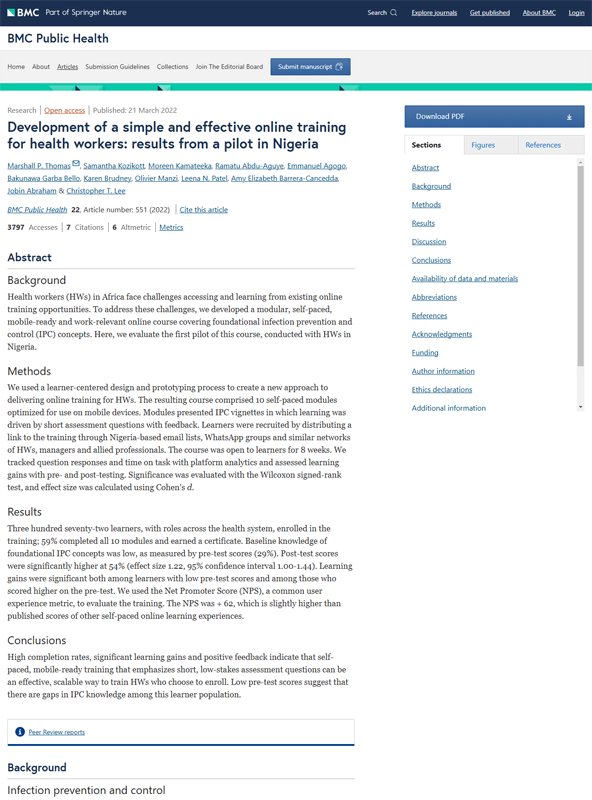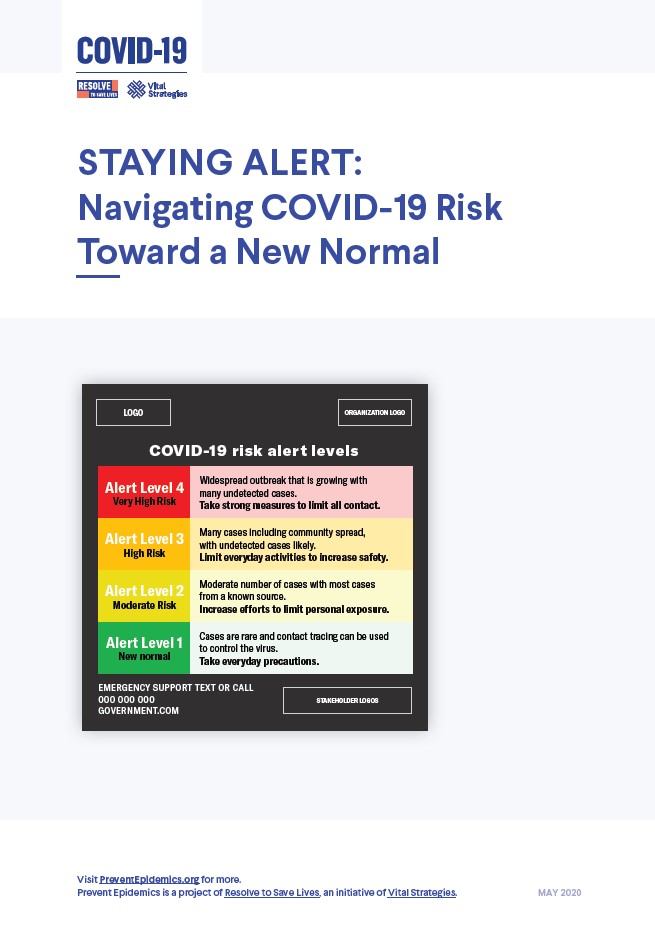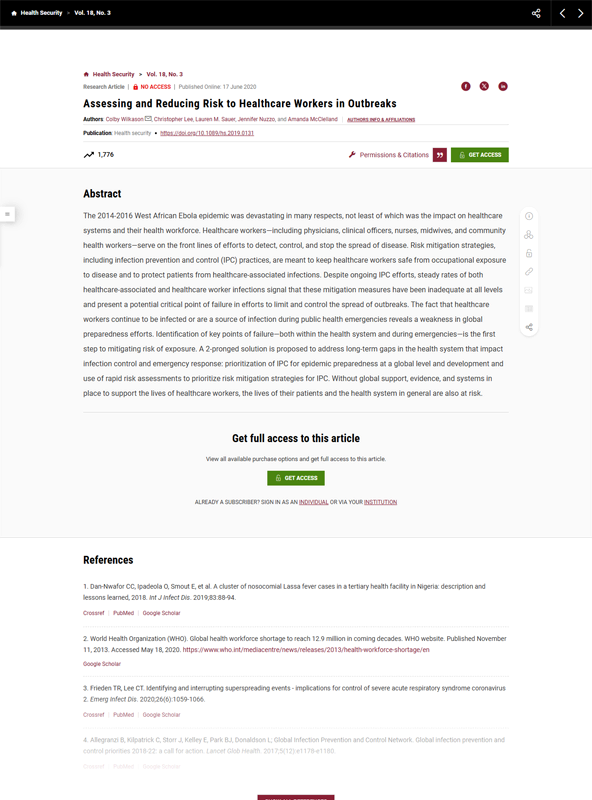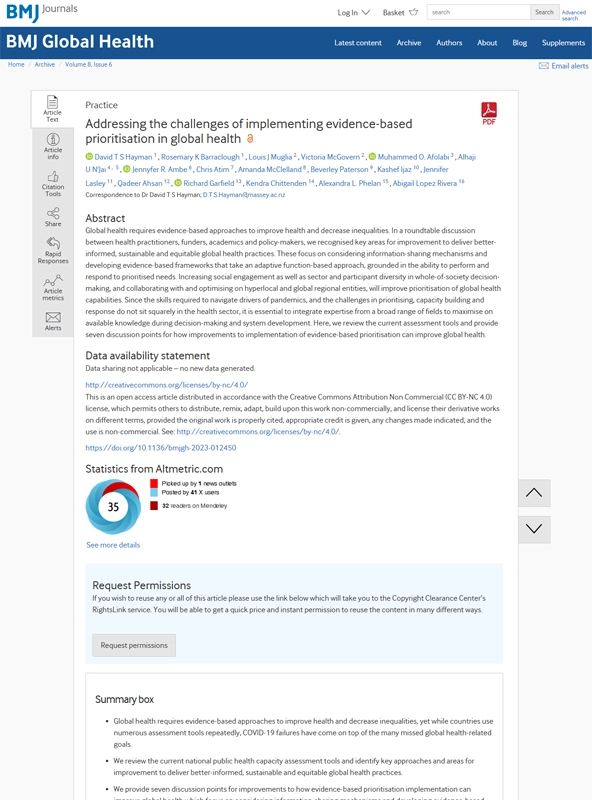Resource Library
Policy and advocacy
Frontiers in Sustainable Cities
We outline ten key themes for strengthening health security in urban environments, allowing cities to better prevent, detect, respond to and recover from health threats.
7-1-7 Alliance
An introduction to the 7-1-7 target, its uses, and how it complements existing tools and assessments.
7-1-7 Alliance
7-1-7 Alliance
7-1-7 Alliance
7-1-7 Alliance
Resolve to Save Lives
Global Health Advocacy Incubator
Resolve to Save Lives
Resolve to Save Lives
Resolve to Save Lives
Global Health Advocacy Incubator
Resolve to Save Lives
Resolve to Save Lives
The International Journal of Health Planning and Management
The May 2024 updates to WHO’s International Health Regulations (IHR) can drive national legal reforms, establish a coordinating authority, and boost local capacities to improve global health security.
The World Bank, Resolve to Save Lives
A landmark study from the World Bank and Resolve to Save Lives that measures the broader socio-economic costs of health care
worker infections and deaths from COVID-19
BMJ Global Health
An infection prevention and control initiative improved COVID-19 infection rates for health care workers in Africa, but challenges showed the need for long-term investments in sustainable IPC programs
The International Journal of Health Planning and Management
We make the case for expanding health care worker protections, including infection prevention and control measures, water, sanitation and hygiene programs, and expanded training opportunities.
BMC Public Health
How can we keep health care workers up-to-speed and prepared to respond to emerging health threats? For BMC Public Health, we demonstrate the power of self-paced, mobile-friendly training.
Resolve to Save Lives
Resolve to Save Lives
Health Security
The 2014-2016 West African Ebola Epidemic exposed a critical weakness in global health security: inadequate protections for health care workers put all our lives at risk. Here’s what we do to fix it.
BMJ Global Health
How can global health do better? In a roundtable with health practitioners, funders, academics, and policy-makers, we identify 7 key areas for improving equity in global health—with evidence.
